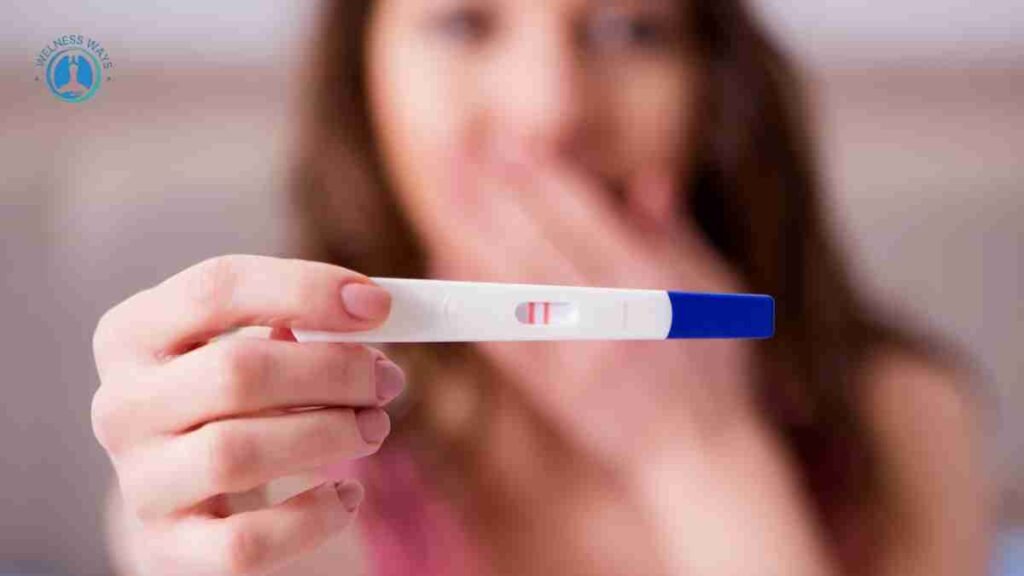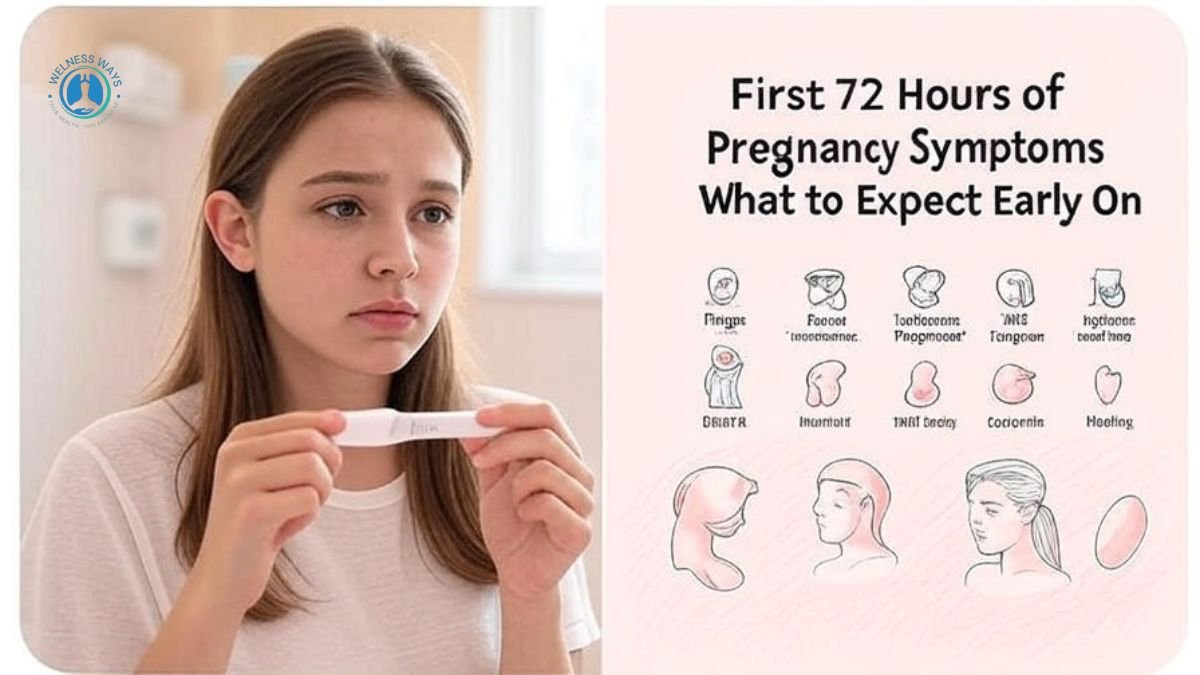First 72 Hours of Pregnancy Symptoms- When a woman conceives, her body begins to Some changes. The Mostly people believe pregnancy symptoms start weeks later, some women may actually start noticing changes in the first 72 hours of pregnancy. These signals can be subtle, but for those who are trying to conceive or are very in tune with their body, they may be noticeable.
In this article, complete explore what really happens in the first 72 hours after conception, what symptoms might show up, and what it all means. If you’re wondering whether you’re pregnant just days after intercourse, this guide will help you understand the earliest signs and what’s happening inside your body.
The First 72 Hours After Conception
Pregnancy begins when a sperm fertilizes an egg during ovulation. This usually happens in the fallopian tube. The fertilized egg with light yellow color is called a zygote, and it begins dividing early into more cells. During the first 72 hours, it travels toward the uterus, where it will later implant into the lining.
Even though this is a very early stage, your body may already start reacting to the changes in hormone levels, especially progesterone and estrogen, which begin to rise. However, since implantation has not yet occurred (it usually happens around day 6–10), most early symptoms during this 3-day window are very mild or even go unnoticed.
Possible Symptoms in the First 72 Hours of Pregnancy

While not every woman will feel symptoms this early, some do report very subtle signs. Here are some of the most common symptoms:
1. Mild Cramping
Mostly women may feel light cramps similar to menstrual cramps. This may be caused by the movement of the fertilized egg . The cramps are usually mild and last only a short time.
2. Slight Spotting or Discharge
Although implantation bleeding typically happens later (around day 6 to 10), some women report a very light pink or clear vaginal discharge even earlier. This is not common Symptoms but not may happen due to early changes in hormone levels.
3. Boost Body Temperature
If you’re tracking your basal body temperature (BBT), you might notice it stays slightly higher after ovulation. A continued rise in BBT for over three days may be an early signal of early pregnancy.
4. Tiredness
Feeling a very tierd and seek, even without do any physical activity, could be an early sign. Your body begins reduce more energy to prepare for the changes ahead, even in the earliest days.
5. Breast Tenderness
Most of the women may feel slight tenderness or swelling in their breasts. This can be similar to premenstrual symptoms and happens due to Boost progesterone Hormone levels.
6. Mood Swings
Hormonal changes can affect your mood it’s a normal symptoms. If you feel suddenly emotional Tierd, irritated, or unusually calm, it could be a sign of early pregnancy.
7. Headaches
Some women may notice light headaches or feel slightly dizzy. This is caused by hormonal changes and a drop in blood sugar or blood pressure.
Also Read- Mistakes to avoid during early Pregnancy:
Should You Take a Pregnancy Test in 72 Hours?

No, it’s too early. this test detecting hCG (human chorionic gonadotropin), which only rises after implantation. This usually occurs 6 to 10 days after ovulation. Testing too early will likely give a false negative, even if you are pregnant.
If you suspect you’re pregnant, it’s best to wait at least a week after ovulation before testing.
What Can You Do During After 72 Hours?
While you wait, here are a few helpful tips:
- Eat healthy: Eat Light and pregnancy-friendly diet with fruits, vegetables, and folic acid.
- Avoid alcohol or smoking: These can harm a developing embryo even before you know you’re pregnant.
- Stay hydrated: Drinking water helps with hormonal balance.
- Avoid stress: High stress can affected your hormones.
When Should You See a Doctor
At this stage, there’s no need to visit a doctor unless you experience unusual symptoms like:
- Heavy bleeding
- Sharp, severe pain
- Fainting or extreme dizziness
Wait until your missed period or take a test after 10–14 days past ovulation. If it’s positive, then schedule your first prenatal appointment.
Conclusion
The first 72 hours of pregnancy are the very beginning of a complex and enjoyfull journey. Most women will not notice clear signs during this time, but a few may feel subtle changes like fatigue, cramps, or mood shifts. these are perfect signs to prengnancy.
The Main Point is to be patient, observe your body, and take care of yourself. Whether or not you’re pregnant, giving your body the right environment to support early pregnancy can make a big difference.
Frequently Asked Questions (FAQs)
1. Can you feel pregnancy symptoms 2–3 days after intercourse?
Some women don’t feel anything so soon, but some sensitive women may notice mild cramps or fatigue emotional changes moodswing tierd. It’s a reliable way to pregnancy.
2. Is it possible to have implantation during the first 72 hours?
No. Implantation usually occurs between 6 to 12 days after ovulation.
3. Can I take a pregnancy test after 3 days?
Home pregnancy tests are only accurate after implantation, usually 10–14 days after ovulation.
4. Why am I feeling tired just 3 days after ovulation?
Fatigue can be caused by Boosting progesterone levels, even if you’re not pregnant. It’s a common early sign but not a confirmation.
5. Are mood swings an early sign of pregnancy?
Yes, hormonal changes can cause mood shifts very early, but this symptom is not conformaton to pregnancy.
6. What should I eat in the first few days after conception?
Eat a balanced diet rich in folic acid, iron, calcium, and protein. Avoid alcohol, junk food, and unpasteurized dairy.

